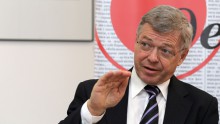Norway is a country that explodes the “oil curse” theory. A country can be civilized and democratic even if it has vast energy resources. And it is not at all obligatory to follow the way of our neighbor, the Russian Federation.
We have spoken to Kjell Magne Bondevik, former prime minister of Norway and current President of the Oslo Center for Peace and Human Rights, on how to compete with Russia on the EU market and what “safety devices” we should use while reforming the energy sector in order to stamp out corruption forever.
Mr. Bondevik was a Norwegian parliament member for 32 years and a party leader for 12 years. Over this period, he was a member of four coalition governments and served two terms as prime minister (in 1997-2000 and 2001-05). As he says himself, “I have some experience.”
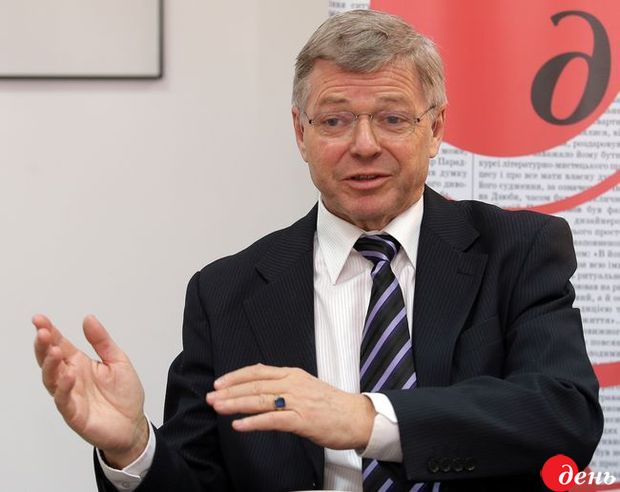
My personal impression is that Mr. Bondevik is a deep-minded person. It was his first visit to Ukraine, but when I asked him to name five things that he had known about this country before visiting it, he, firstly, named “dumplings, borsch, and embroidered shirts,” and, secondly, said he knew that we are a state with an extremely difficult history, and this is why our “society has such a strong demand for independence.” He said we are a country of an extremely rich culture and natural resources which we have failed so far to tap effectively.
“I know that Ukraine needs changes – first of all, in corruption control, the political system, the energy sector, and education. But it is difficult for me, a foreigner, to advise Ukrainian politicians what to do. I can only share Norway’s experience.
“Corruption is an extremely formidable challenge to Ukraine. And, frankly speaking, you are not unique in this. Even in Norway there were a few serious corruption-related scandals recently.
“Let me point out three key things that are indispensable for stamping out corruption. Firstly, adequate laws. Secondly, transparency in political life and the business milieu. And, thirdly, sanctions against the ‘rogues’ involved in corruption.
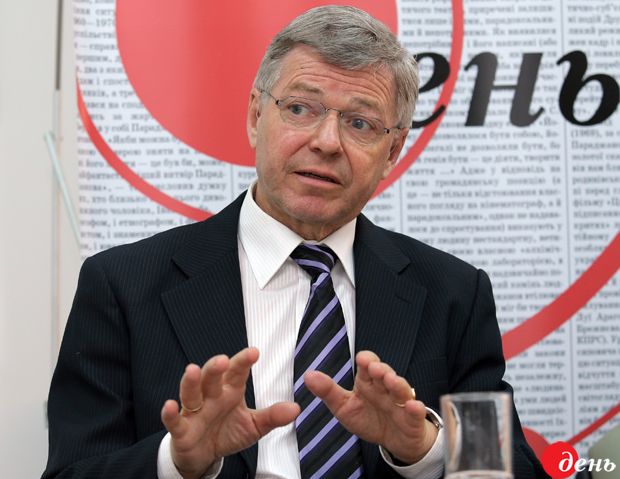
“A super-important element in reforming the political system is the origin of political parties’ funding sources. I hear very many parties in Ukraine are funded by oligarchs. Therefore, ordinary people have no adequate impact on the political system. I don’t want to advise Ukraine who to organize the funding of political parties – I will only tell you about Norwegian experience. A major share of funds in our country comes from the state, which makes political parties less dependent on certain groups of the population and specific individuals.”
One of the main sources of corruption infection in Ukraine is oil and gas pipelines. You say that energy reform is one of the pivotal ones for our country. What safety devices should we set up, on the basis of Norway’s experience, to stamp out corruption and prevent from reappearing in the future?
“Clearly, as long as oil and gas make up a huge sector of the Norwegian economy, this also creates immense corruption risks in our country. But the three rules I mentioned above – adequate laws, transparency, and strict sanctions – allow us to minimize them.
“A colleague, who arrived in Ukraine together with me, was Norway’s energy minister for a long time. When in office, he once dismissed a director of Statoil, a very large Norwegian oil and gas company, for being involved in a corruption scheme to sell oil to Iran. This is an example of a serious attitude to a corruption scandal.”
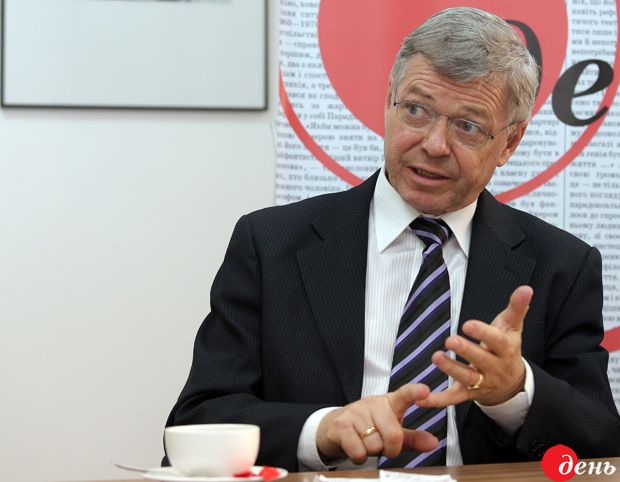
The new IMF program for Ukraine calls for an abrupt rise in energy rates. One of the reasons why our government has opted for this step is that residents of donor countries pay a high price for gas and heating. Would you, representative of an exporting country, explain whether expensive (above all, traditional) energy resources will leave no alternative in the future for the European community, including Ukraine? If it is the case, why?
“I will be very cautious in commenting on this decision, for it is the subject of a dialog between the IMF and the Ukrainian government.
“Of course, this decision is unpopular among the populace. But sometimes, not only in the case of Ukraine, this step is necessary in order to make consumption more effective.
“In Norway, an oil and gas rich country, very many people do not like it that, for example, gasoline prices are very high. And they are always asking why we cannot cut fuel prices if we have so much oil. We have a party that broaches this subject ceaselessly.
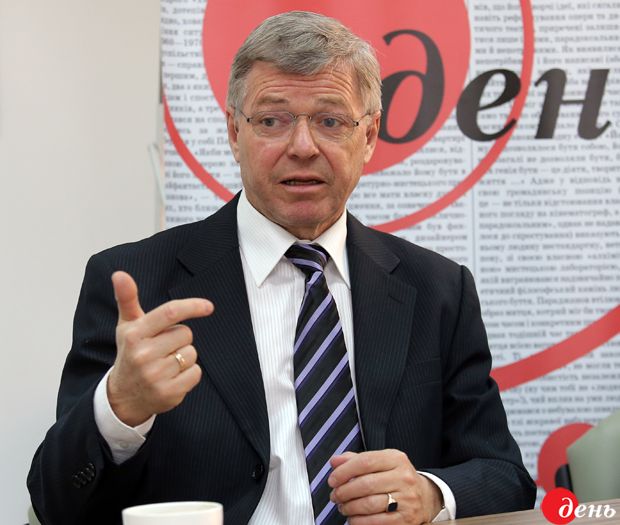
“The logic of our high prices is that if we cut gasoline prices, people will stop thinking of the environment and use these resources less reasonably. It is important for any country, particularly Ukraine, to have a most effective energy sector.
“We know that Ukraine is heavily dependent on nuclear energy. But the greatest ambition for us and for you should be to increase the share of the energy that comes from renewable sources, such as wind and the sun.”
The energy sector’s effectiveness depends to a large extent on its structural organization. As far as I know, there is no state-run monopolist on this market in Norway. But there is one in Ukraine. Would you, as a former premier, tell us about the advantages and disadvantages of your energy market’s structure?
“Norway is a serious exporter of energy resources. We are the world’s third and sixth largest supplier of oil and gas, respectively. We have a large state-run company that deals with the extraction of gas and oil. It is Statoil which owns, among other things, extremely vast shelf deposits of gas. The state holds the key block of shares in this company. At the outset, in the 1960s, the state owned 100 percent of the company’s shares. A few years later we reduced this block to 60 percent, but still it was too much. To boost its effectiveness, the company began to attract business, which was of great benefit for it.

“As for hydroelectric energy, most of the companies are run by either the national government or municipalities. But still, private companies are also involved in this process. They are subject to strict regulation on the basis of Norwegian laws. It is a very successful model.
“The key idea of Norway’s energy sector organization is that resources belong to ordinary citizens of our country. Therefore, the local and central authorities, which represent the interests of people and work on behalf of them, have the right to control these resources.
“It is not only Statoil that extracts oil and gas offshore. We have also invited our international partners. They also participate in tapping these resources. Large companies, such as Exxon Mobil, British Petroleum, and Shell, extract gas on our territory. But they are subject to the same regulation as the Norwegian companies are. And they pay extremely high taxes. Yet, despite a strong regulatory policy and high taxes, these companies are interested in extracting these energy resources. In my opinion, this amply proves the effectiveness of Norway’s energy market organization.”
ON COMPETITION WITH RUSSIA
Norway is jokingly called Europe’s main filling station. But you have a rival which is also laying claim to this title – it is Russia. What do you think about the competition instruments which that country uses on the European market?
“Of course, it is strong competition. But the high competence of Norway’s government allows it to successfully win this rivalry. It is very good that European countries can choose the seller of gas and oil. Diversification is important in this context.
“In a way, Norway and Russia are complementing each other.”
Now that Russia has begun to behave as an unpredictable partner, there are more and more reports that European consumers are going to drop Russian gas and oil in favor of Norwegian resources. Some experts even speak of a 100-percent EU transition to Norwegian gas. To what extent is this true? And are there any real signs of this process? I mean whether any negotiations are underway to sign long-term contracts on the diversification of gas supply to EU countries.
“Norway has indeed increased the export of energy resources to both Western and Eastern Europe. We are unable to radically boost our export today because we are bound by the contracts that specify the quantities we can supply. In other words, if new countries want to buy more Norwegian gas, this will be a long-term prospect. It is a question of negotiations. And, maybe, we will have to reduce supplies to some countries in order to increase them to the other.”
“THE VISIT TO UKRAINE IS OUR FIRST MISSION ON THE EUROPEAN CONTINENT”
What is the aim of your visit to Ukraine?
“First of all, I came here as founder of the Oslo Center for Peace and Human Rights at the invitation of the National Democratic Institute to meet Ukrainian political and public figures and share the experience of inter-institutional cooperation. Taking into account the experience of the Norwegian political system, it is important that political institutions and governmental bodies work in a democratic system in order to maintain independence.
“The Oslo Center for Peace and Human Rights, in conjunction with the National Democratic Institution and particularly Ms. Mary O’Hagan, has worked in Kenya and other African and Asian countries to share the best experience of democratic systems and administration.
“The visit to Ukraine is our first mission on the European continent. Before going to Ukraine, we held a debate at the Oslo Center on whether we should focus on Europe.
“As it is the Oslo Center’s first visit to Ukraine, we have learned a lot here. For us, it was sort of a fact-finding mission.
“We have met representatives of the five parties that form a pro-governmental coalition and of such new political forces as Power of People and Democratic Alliance parties. We also had a meeting with some nongovernmental organizations that represent the civic sector, an integral part of democratic institutions. Naturally, we shared with the NGOs the experience of cooperating with the government and parliament on the basis of the way it is done in Norway.
“I can see a tremendous potential for strengthened democratic governance in Ukraine. We met competent and obliging leaders. The fact that we saw very many young leaders, especially women, inspires deep respect. We know that these people work in not-so-simple conditions in a difficult situation, when there is a war in the east and a true struggle for independence. So I’d like to express my great solidarity with the Ukrainian people at this moment.”


